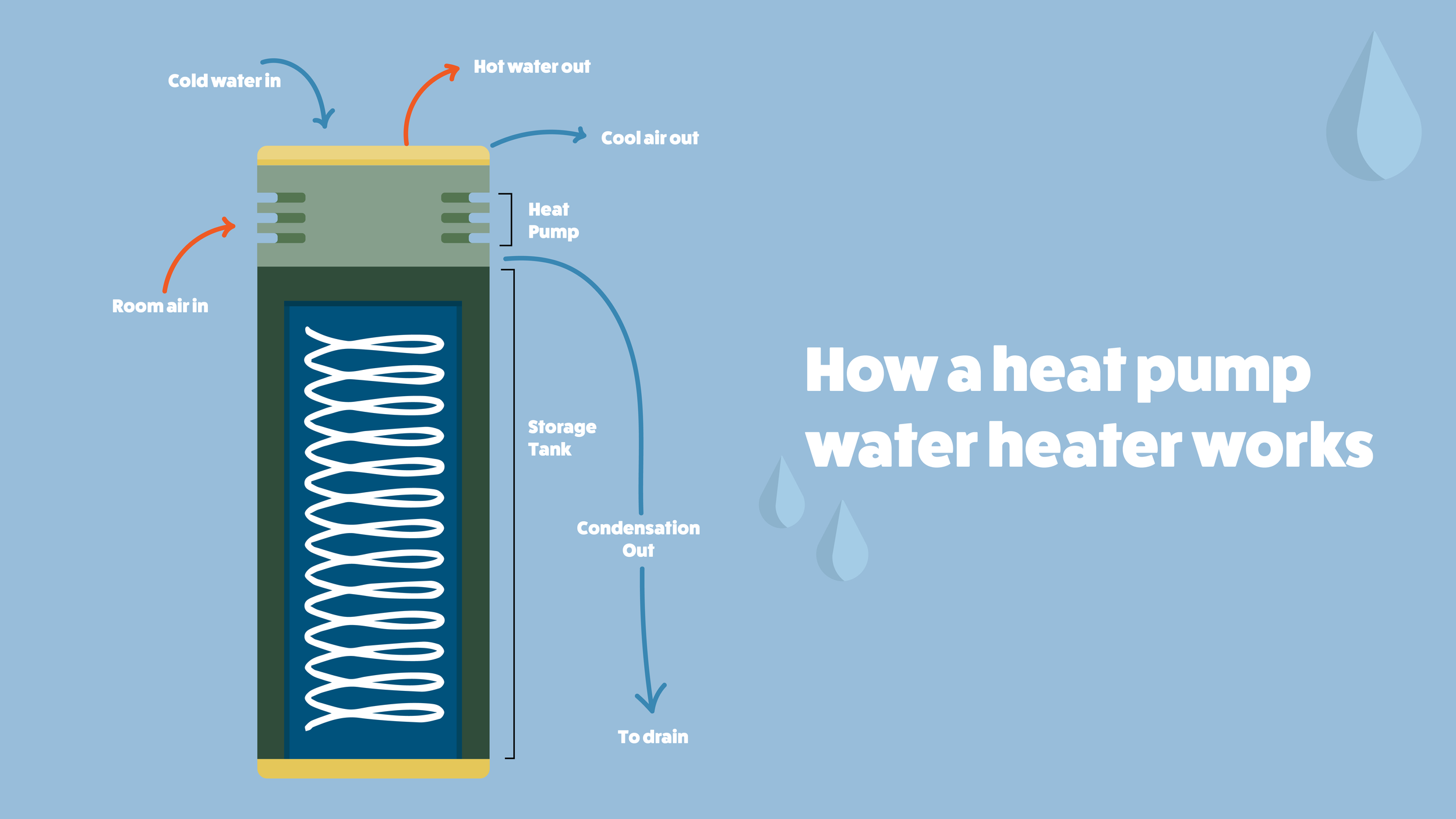3 Reasons Why Heat Pumps Are Worth It
this is a thing I have done!
When my water heater died I already had a goal to convert my house into an all-electric property, and I had a rough plan for how to do it. A huge piece of going all-electric is installing a heat pump water heater (HPWH). So I did the thing! For me, my favorite part is the “magical” more-than-100% efficiency. More on that below, and the other main benefits.
the tech basics
Heat pump water heaters — or HPWH's — use electricity, but they don’t work like the electric water heaters of yesteryear.
While a typical electric water heater "burns up" electricity by running it through a resistance rod ("heating element"), a HPWH runs refrigerant between an evaporator coil and a compressor. By expanding and contracting the refrigerant, the HPWH simply moves heat into your water. This is much more efficient, because the little motor that moves refrigerant around just needs a small amount of energy.
So the refrigerant does the heavy lifting, but so does the air in the room surrounding your water heater! How does air do heavy lifting?! This heat pump process “steals” latent heat energy from the surrounding air, creating greater-than-100% efficiencies.
If this sounds complicated, it might surprise you to know that you already have a several heat pumps in your life, including your refrigerator, your A/C, and your car’s A/C. Think of a HPWH like a refrigerator working in reverse; it pulls the heat into your water rather than pulling the heat out of your fridge.
A typical electric water heater is 100% efficient. Now, you may be thinking that sounds really good, but HPWH's blow that out of the water (pun intended). Because these creative machines just use a small motor to move refrigerant back and forth, they are ~300% efficient. Due to the magic of this heat pump process, every unit of energy that goes into the motor transfers three units of energy into the water.
Benefits of Switching to a Heat Pump Water Heater:
Lower energy costs
HPWH's save ~60% on electricity costs compared to old school electric water heaters, making them a cost-effective choice over the long term. While the initial cost of a HPWH is higher, the energy savings over time can make up for the difference, and then some. If you know how to apply for IRA incentives and local utility rebates, you're even farther ahead.
2. Improved performance
Heat pumps are creative and efficient, but they can't keep up with a huge drain on your tank, like two hot showers back to back. Fortunately, most water heaters are hybrid units; in addition to using heat pump technology, they still have a heating element ready to rock for times of peak demand. This means you won’t have to wait for hot water when it's urgent, but overall you’ll see very low energy use since the heat pump can easily keep up with more common daily uses of hot water. So you get the best of both worlds.
3. Environmental benefits
By reducing the amount of energy needed to heat water, heat pump water heaters reduce greenhouse gas emissions and lower your carbon footprint. And if you're switching from gas to electric, you get dual benefits: using less energy and switching to a fuel source that gets greener and greener every year, since the electric grid pulls more renewable resources online every year.
In conclusion, switching to a heat pump water heater can offer significant benefits in terms of energy savings, long-term cost savings, and environmental impact. If you're in the market for a new water heater, it's definitely worth considering the benefits of a heat pump water heater.
TAKE THE NEXT STEP
Ready to see what it would take to convert your water heater to a HPWH? Get in touch with william@greenprojectsgroup.com to learn more about our new electrification coaching service.
ADDITIONAL RESOURCES:
Need more info? Check out this awesome 1-hour class, from local nonprofit GreenHome Insitute. They have tons more resources so check ‘em out and consider supporting their mission!

